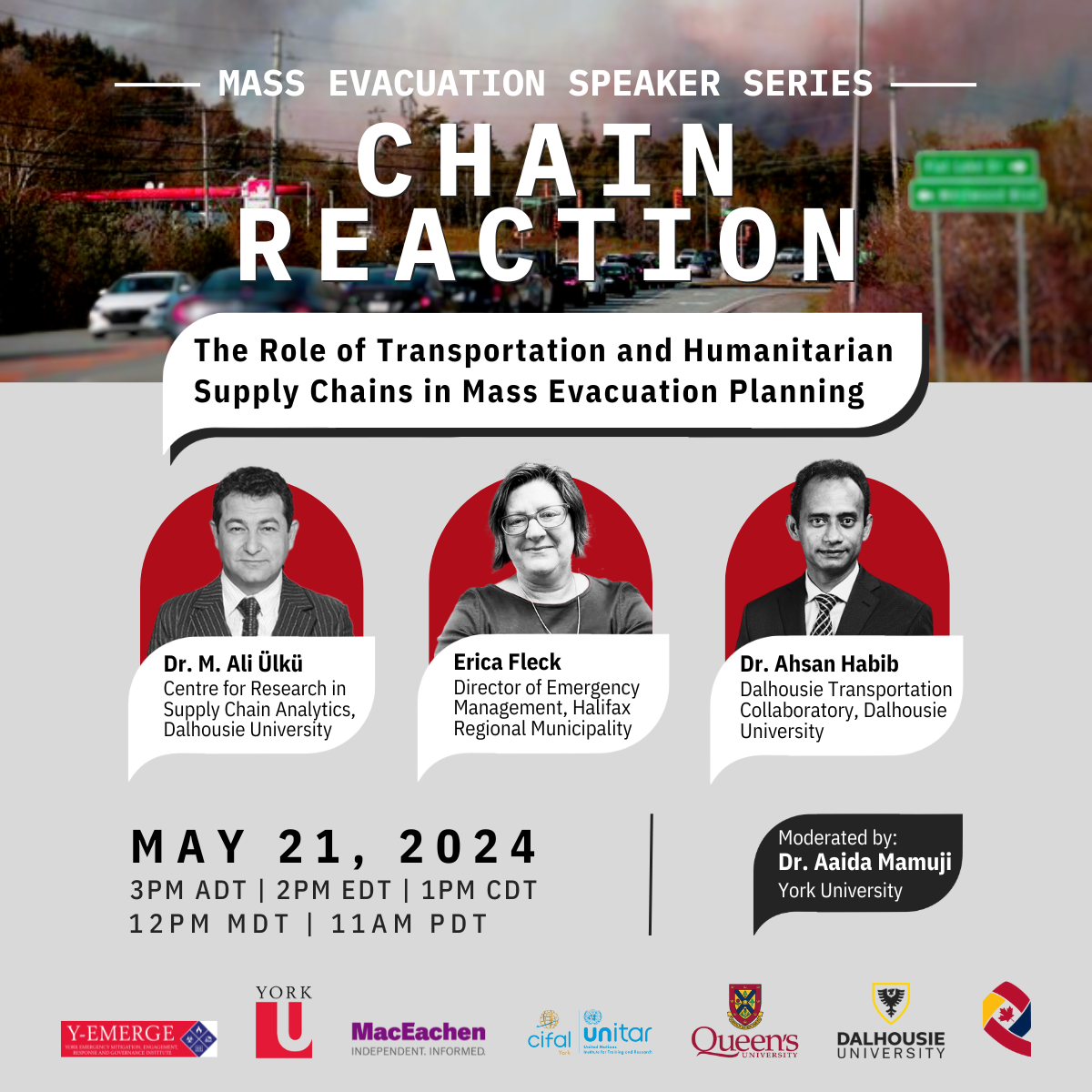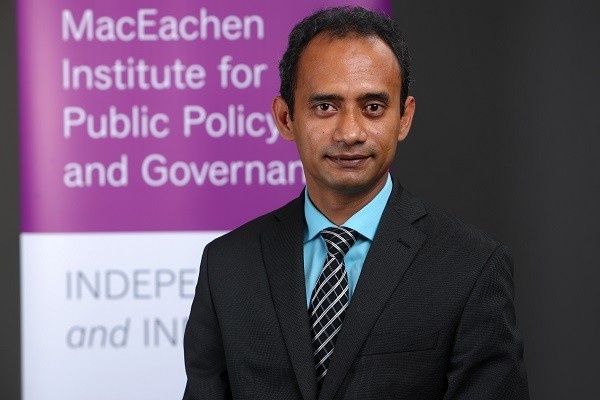Mass Evacuation Speaker Series: Panel 1

Chain Reaction: The Role of Transportation and Humanitarian Supply Chains in Mass Evacuation Planning
*This event originally took place May 21, 2024.
听
Featuring:
- Dr. Ahsan Habib, Director, 果酱视频 Transportation Collaboratory
- Dr. Ali Ulku, Director, Centre for Research in Sustainable Supply Chain Analytics
- Erica Fleck, Director of Emergency Management, Halifax Regional Municipality
- Moderated by Dr. Aaida Mamuji, Associate Professor, York University
Transportation and humanitarian supply chains are the backbone of mass evacuation operations, enabling emergency managers to deliver crucial aid to affected areas and populations in a crisis. Leveraging transportation data gives emergency managers and planners at all points of the supply chain valuable insights that allow them to enact more efficient and effective mass evacuations in the face of a crisis.
In听Chain Reaction: The Role of Humanitarian Supply Chains and Transportation Mapping in Mass Evacuation Planning,听Dr. Ahsan Habib of the 果酱视频 Transportation Collaboratory;听Dr. Ali听脺lk眉 of the Centre for Research in Sustainable Supply Chain Analytics;听and Erica Fleck, Director of Emergency Management for Halifax Regional Municipality,听will explore the complexities of transportation and humanitarian supply chains in planning for mass evacuations.
The Mass Evacuation Speaker Series is a joint initiative from and at York University; the MacEachen Institute for Public Policy and Governance at 果酱视频 University; and the at Queens University.
A briefing note summarizing the panelists' presentations and subsequent discussion is available here:
Full video recording:
果酱视频 the Speakers

Dr. Ahsan Habib
Director, 果酱视频 Transportation Collaboratory (DalTRAC)
Director, 果酱视频 University School of Planning听
Ahsan Habib is a transportation professor at 果酱视频 University. He received a PhD degree in civil engineering from the University of Toronto in 2009. He held a professional position at the Ministry of Transportation Ontario (MTO) prior to joining 果酱视频 University in 2010. He is the founder of the 果酱视频 Transportation Collaboratory (DalTRAC) under the Leaders Opportunity Grant program of the Canada Foundation for Innovation (CFI). His research interests include travel behavior analysis, travel demand forecasting, and the microsimulation of urban systems. Dr. Habib believes multi-modal mobility options are the key to ensuring sustainability for Canadian cities.
听

Dr.听Ali听脺lk眉
Director,听Centre for Research in Sustainable Supply Chain Analytics
M. Ali 脺lk眉, Ph.D., P.Eng., is the Director听of the听. Dr. 脺lk眉's research听includes studies in circular and sustainable supply chain and (humanitarian) logistics systems, analysis of manufacturing/retailing and service operations, green marketing and optimal contract designs, analytical modelling of sustainable consumption and development, and interdisciplinary research on big data and societal/environmental problems. Ali believes in the "science and teaching of better" and is an avid supporter of student-led research.
听

Erica Fleck
Director of Emergency Management,听Halifax Regional Municipality
Erica is currently the Director of Emergency Management for Halifax Regional Municipality. Prior to this position, she was the Assistant Chief of Community Risk Reduction with Halifax Fire & Emergency. Prior to her moving to the Municipality, Erica was a proud member of the Canadian Armed Forces, where she served in Canada and overseas for different missions. Erica focuses her work to prepare and educate individuals, families, and communities in all pillars of Emergency Management.
